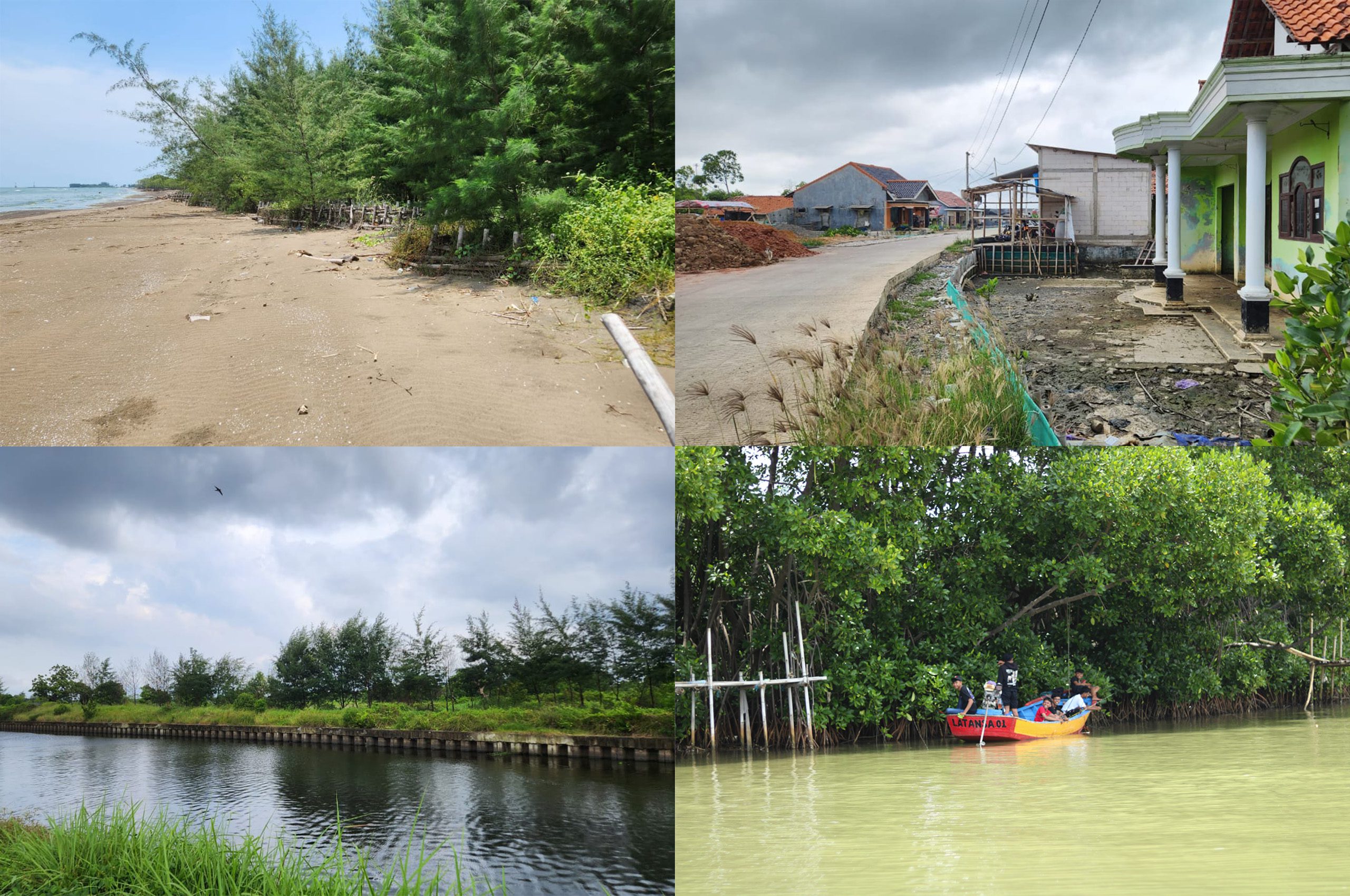Climate Change and Planning: Critical Pedagogies from Coastal/Delta Cities of Asia
Semarang, Indonesia; Kolkata, India
The SMUS Teaching Research Course 2023/2024 on Climate Change and Planning: Critical Pedagogies from Coastal/Delta Cities of Asia involves collaboration between Diponegoro University (Indonesia) and IIT Kharagpur (India).
The coastal/delta cities of the global South are dotted with additional environmental risks against the fastest spread of urbanization. Yet these exciting urbanscapes also expose us to some of the finest examples of place-based, needs-driven, bottom-up (and frugal) experiments, innovations, and (more-than-human) entanglements, enactments, and practices (re)shaping urban nature – that await recognition, documentation and incorporation within discourses on and pedagogies of urban planning and development. Using two coastal/delta cities from India (Kolkata) and Indonesia (Semarang) as empirical contexts of application, this research project critically engages with mainstream ‘urban resilience’ and disaster mitigation plans, offering situated understandings of urban metabolism and coastal resilience.
The course in interactive, interdisciplinary and immersive – incorporating both classroom teaching-learning activities and field visits to peri/urban pockets impacted by climate change, finally allowing participants to witness firsthand the effects of co-knowledge production on community resilience for example, in Pekalongan (Indonesia).
Pekalongan, a city near Semarang, faces significant environmental risks due to the ongoing urbanization process. This has led to land subsidence of up to 11.9 cm over a period of 2 years, as well as rising sea levels. As a result, the area is predicted to sink by 2035 as per the estimation published by the Central Java Government in 2022. To address this issue, the government has implemented various solutions, such as constructing embankments and promoting early warning systems. Additionally, the community and NGOs are actively working together to reduce the negative impacts of flooding. For instance, in several villages like Api-api, Pecakaran, Semut, Tratebang, and Wonokerto Kulon, low-threshold breakwaters (PEGAR) have been built as a result of this collaborative efforts and knowledge co-production and mobilization between the community and NGOs.
Objectives and innovative aspects of the research project
- The project expands the pedagogic frontiers of urban planning, disaster management, and mitigation, against the contemporary climate crises for coastal/delta cities of the global South.
- It perspectives cities as complex adaptive systems that evolved along dynamic interactions and intra-actions between technological apparatuses and social arrangements spanning across different historical and political epochs.
- It validates why transplanting ‘urban resilience’ (imitating models from the global North) is faulty, and lays out an interdisciplinary-interactive-immersive teaching-research design, forging viable transitions to resilient urban ecological trajectories – accommodating agencies of plural actors and actuating multi-species justice.
Relationship of the research topic to SDG #11
The research project addresses intersecting SDG 11 targets, directly (11.3 – Inclusive Urbanization and Participatory, Integrated Planning; 11.5 – Resilience to Disasters; 11.6 – Reduced Environmental Impact of Cities) and indirectly (11.4 – Cultural and Natural Heritage; 11.A – Rural Urban Linkages; 11.B – Comprehensive Disaster Risk Management). It offers a situated understanding of urban metabolism and coastal resilience against climate risks encountered by developing cities during the Anthropocene as well.
Research output (publications)
- A manual or a handbook, compiling the project trajectory – bringing to the fore trans-local lessons and experiences in co-designing and executing the project – a decolonizing interdisciplinary methodological approach to explore diverse, dense, complex, and volatile urban deltas.
- A Springer video focusing on the methodological relevance of this research project.
SDG #11 Target













